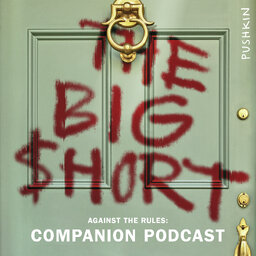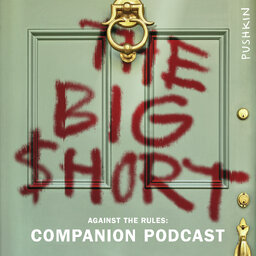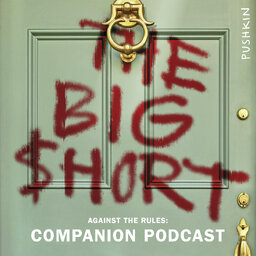On Background: The Political Spender America Deserves
During the 2022 election cycle, crypto mogul Sam Bankman-Fried gave as much as $40 million in political donations. That whopping sum caught the attention of campaign finance watchdogs, even before Bankman-Fried was arrested and charged with various financial crimes. Michael Lewis talks to Jordan Libowitz of the Campaign for Responsibility and Ethics in Washington (CREW) to understand the complex world of campaign finance law. And we hear why SBF, in confessing his dark-money deeds, may be a game changer. (NOTE: after this episode was recorded, federal prosecutors announced they were dropping a campaign finance charge against Bankman-Fried.)
Go to atrpodcast.com to submit a question for Michael to answer in an upcoming episode.
In 1 playlist(s)
Against the Rules: The Big Short Companion
Michael Lewis’s best-selling book The Big Short is now 15 years old. The Oscar-winning movie based o…Social links
Follow podcast
Recent clips

Here’s the Scoop from NBC News: Looking Ahead to Politics in 2026 with Steve Kornacki and Ryan Nobles
30:43

Live with Nicolle Wallace
40:31

Michael Burry Speaks
36:22
 Against the Rules: The Big Short Companion
Against the Rules: The Big Short Companion